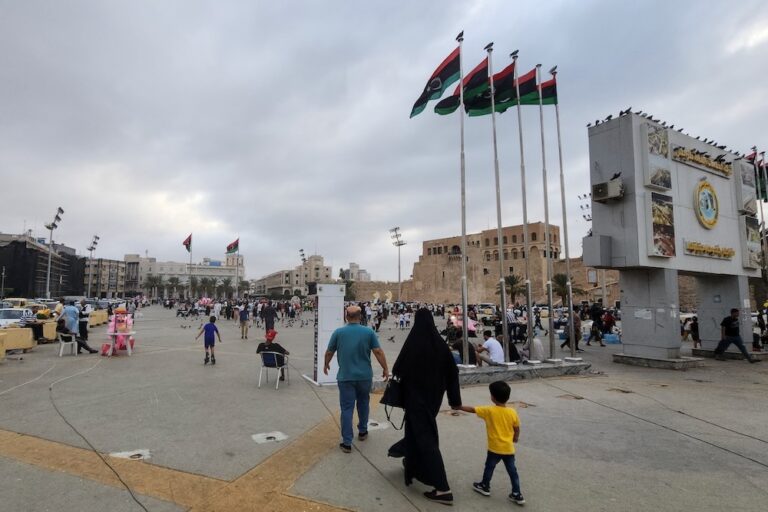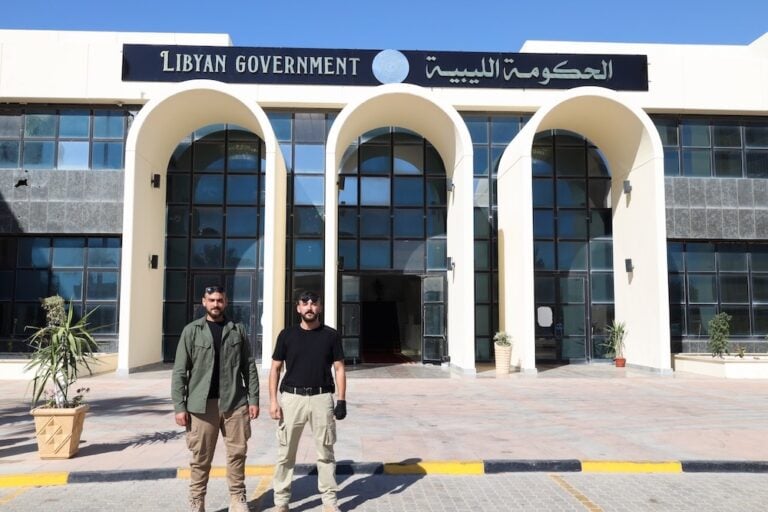Reversing earlier progress, the regime has been cracking down on the media, especially independent news websites.
(RSF/IFEX) – Four Radio Benghazi journalists who worked on a programme that specialises in covering corruption were arrested on the evening of 16 February 2010 outside the station in Benghazi (650 km east of Tripoli) and were released at midday (local time) the following day. Their arrests come amid a general crackdown by the Libyan authorities on news media, especially independent news websites.
“We firmly condemn these arrests and the campaign that has been waged since the start of the year against Libyan media that dare to criticise abuses in the system,” Reporters Without Borders said. “The authorities began to lift the lid on fundamental freedoms, including press freedom and free expression, in 2007, but now they have gone into reverse.”
The press freedom organisation added: “We urge the Libyan authorities to stop harassing journalists and to unblock the independent websites that have been inaccessible for more than a month.”
The four Radio Benghazi journalists who were arrested on 16 February on the interior ministry’s orders were Miftah Al-Qabaili, Sliman Al-Kabaili, Khaled Ali and Ahmad Al-Muqsabi. All four worked on “Massaa Al-Kheir Benghazi” (Good Evening, Benghazi), a programme that specialised in exposing administrative and financial corruption in Benghazi.
Qabaili was the programme’s producer, while Kabaili was the production manager. The programme also tackled politically sensitive issues such as the June 1996 massacre in Abu Salim prison. Radio Benghazi’s manager has suspended the programme, fired the four journalists and banned them from entering the station.
The arrests appear to be part of a broader crackdown that has also affected independent news websites based abroad. Sites such as Libya Al-Youm, Al-Manara, Jeel Libya, Akhbar Libya, Libya Al-Mustakbal and Libya Watanna have been inaccessible in Libya since 24 January. YouTube has also been blocked since 24 January following the posting of videos of demonstrations by the relatives of prisoners in Benghazi and videos of Libyan leader Muammar Gaddafi’s relatives at parties.
“Oea” and “Quryana”, the first privately-owned newspapers to be launched by Al-Ghad, a company headed by Gaddafi’s son, Seif Al-Islam Gaddafi, in August 2007, stopped publishing in January following the General Press Authority’s refusal to continue printing them on the grounds that some of their bills had not been paid. They are continuing to post articles online.
The authorities have also created a new entity called the “Press Deputy” (Niyaba As-Sihafa), which has been tasked with monitoring journalists and other media employees who do investigative reporting on cases of corruption.


